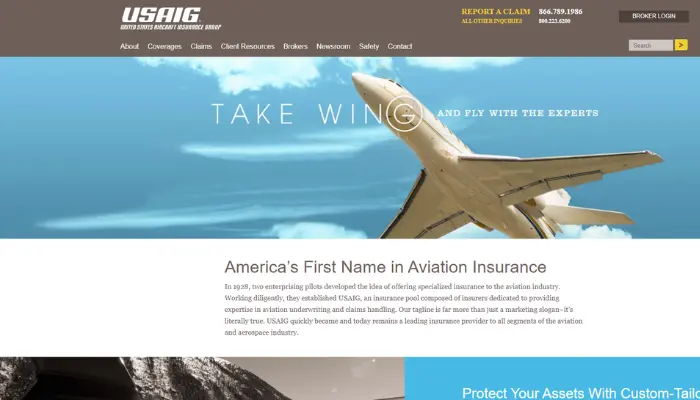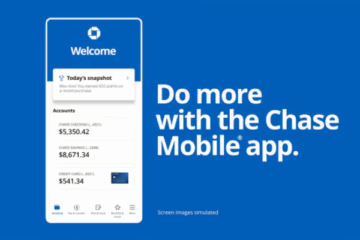USAIG: Comprehensive Drone Insurance Options
If you are in the market to ensure the safety and protection of your drone, Drone Insurance from the United States Aircraft Insurance Group (USAIG) might be exactly what you need.
Advertising
With a long history of specialization in aviation insurance, USAIG stands out for offering personalized insurance for drones, whether for recreational or commercial use.
Advertising
In this article, we will explore in detail the coverage and benefits that this insurance provides.
Liability Insurance Coverage
Liability coverage is one of the most important aspects of USAIG’s Drone Insurance.
Advertising
Whether you’re flying for recreational purposes or commercial operations, this coverage is essential, as it protects you from the financial risks associated with accidents involving third parties.
Drones, even in the hands of experienced operators, can cause unintended damage, and having liability insurance ensures that you’re prepared for any unforeseen incidents.
What is covered?
- Damage to third-party property (e.g., buildings, vehicles, land)
- Bodily injuries to people caused by the drone
- Coverage against lawsuits resulting from accidents
This protection ensures that if your drone causes an accident or damage, you won’t have to bear the financial or legal costs alone.
USAIG takes responsibility for these incidents, offering peace of mind not only in daily operations but also in more complex or high-risk activities, where the potential for damage may be greater.
Hull Damage Coverage

Beyond liability protection, hull damage coverage is another vital component of drone insurance from USAIG.
This type of coverage ensures that, in the event your drone sustains physical damage, whether through an accident or environmental factors, the cost of repairs or even full replacement will be taken care of by USAIG.
Given the high value of drones and the sensitive equipment they often carry, hull damage coverage provides peace of mind, especially for frequent operators.
What is covered?
- Accidental damage (crashes, collisions)
- Drone theft
- Damage caused by natural disasters (strong winds, rain, etc.)
For example, imagine you’re conducting an aerial inspection and a sudden gust of wind sends your drone crashing into a nearby building.
This type of incident would fall under hull damage, and with USAIG’s coverage, you would be promptly assisted with repairs or replacement, allowing you to resume operations without significant delays or financial stress.
Commercial Drone Insurance
If you use your drone for commercial purposes, USAIG offers specially designed plans to meet your needs. Drones are widely used in various industries, such as filmmaking, construction inspections, and precision agriculture.
Benefits for commercial drones:
- Expanded coverage for intensive use in commercial operations
- Additional protection against damage during critical missions
- Plans that include coverage for additional equipment attached to the drone (such as cameras and sensors)
Having insurance tailored to commercial drone use is vital, as the risks in professional operations are higher. Moreover, losing or damaging a drone during an operation can interrupt projects and generate high costs, making insurance an essential tool for financial protection.
International Coverage
For those who operate drones in different countries, USAIG also offers international coverage. This is extremely useful for professionals who perform filming or inspections in various regions.
How does international coverage work?
- Protection in various countries, following local laws
- Continuous coverage for operations that require international travel
- Customer support in different regions
Operating drones internationally can be challenging due to various regulations. However, with insurance that adjusts to different jurisdictions, USAIG makes the process easier by offering support and security at every step.
Claims Process
One of the aspects that most concerns users is the claims process. After all, if an accident occurs, you want to be sure that the process will be quick and efficient. USAIG’s claims process is known for its simplicity and effectiveness.
Step-by-step to file a claim:
- Report the incident: As soon as the accident occurs, contact USAIG to report the incident.
- Submit documentation: Provide all necessary documents, such as photos, reports, and any other evidence related to the claim.
- Claims assessment: The claims team will assess the case and inform you if it is approved or if more information is required.
- Receive compensation: Once the claim is approved, the payment or repair will be processed, ensuring you can return to operation quickly.
This clear and straightforward process helps minimize stress in an already delicate situation.
Customized Plans for Different Industries
USAIG understands that each industry has its own requirements when it comes to drone operations. That’s why they offer customized plans for various industries such as construction, agriculture, energy, and entertainment.
Examples of industry-specific customization:
- Agriculture: Coverage includes protection for drones used in surveys and crop monitoring.
- Construction: Insurance that covers drones used in building and structure inspections.
- Media and Entertainment: Plans for drones that capture aerial images in video and film productions.
This customization provides more effective protection, tailored to the risks and demands of each type of operation, ensuring you have the exact coverage for your type of work.
Legal Requirements for Insured Drone Operations
Below are the key legal requirements that drone operators must follow:
USAIG Drone Insurance offers a complete solution to protect your drone, whether you use it for recreational or commercial purposes.
With comprehensive coverage, international support, and an efficient claims process, USAIG is a trusted choice to ensure your operation is always protected.
If you haven’t yet secured protection for your drone, consider exploring USAIG insurance options and find the ideal plan for your needs.





